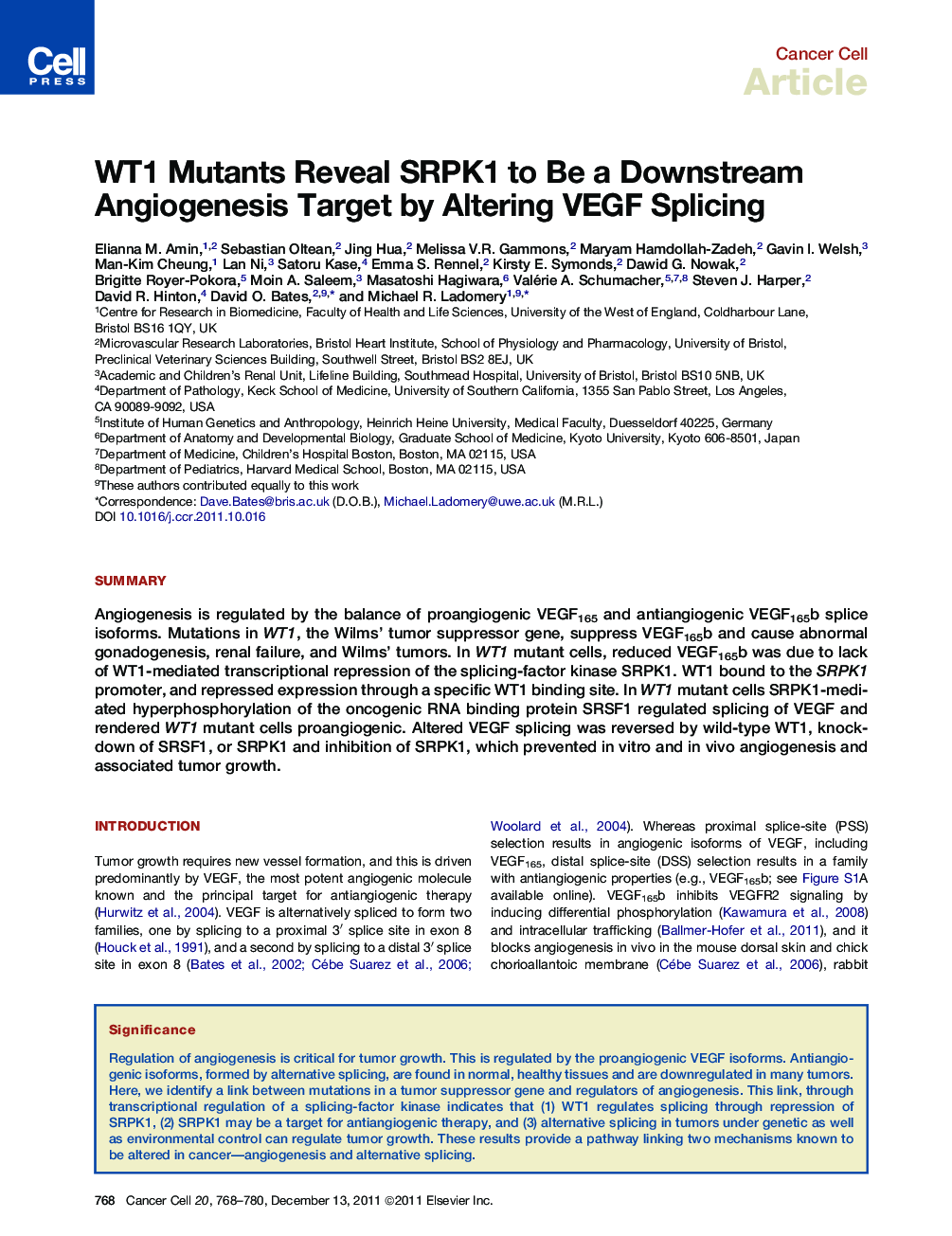| Article ID | Journal | Published Year | Pages | File Type |
|---|---|---|---|---|
| 2108139 | Cancer Cell | 2011 | 13 Pages |
SummaryAngiogenesis is regulated by the balance of proangiogenic VEGF165 and antiangiogenic VEGF165b splice isoforms. Mutations in WT1, the Wilms' tumor suppressor gene, suppress VEGF165b and cause abnormal gonadogenesis, renal failure, and Wilms' tumors. In WT1 mutant cells, reduced VEGF165b was due to lack of WT1-mediated transcriptional repression of the splicing-factor kinase SRPK1. WT1 bound to the SRPK1 promoter, and repressed expression through a specific WT1 binding site. In WT1 mutant cells SRPK1-mediated hyperphosphorylation of the oncogenic RNA binding protein SRSF1 regulated splicing of VEGF and rendered WT1 mutant cells proangiogenic. Altered VEGF splicing was reversed by wild-type WT1, knockdown of SRSF1, or SRPK1 and inhibition of SRPK1, which prevented in vitro and in vivo angiogenesis and associated tumor growth.
Graphical AbstractFigure optionsDownload full-size imageDownload high-quality image (199 K)Download as PowerPoint slideHighlights► SR protein kinase 1 is a target for the Wilms Tumor suppressor gene-1 ► WT1 mutations lead to altered VEGF splicing by hyperphosphorylated SRSF1 ► SRPK1 overexpression regulates VEGF splicing and angiogenesis ► SRPK1 inhibition is antiangiogenic in tumors in vivo
